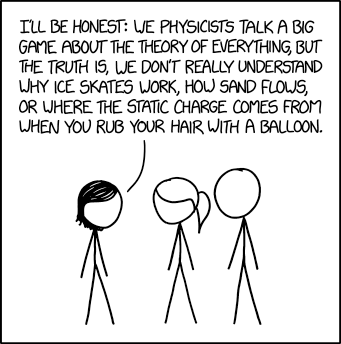Sunday, 5 November 2017 - 4:29pm
This week, I have been mostly reading:
- The Little Black Box That Took Over Piracy — Brian Barrett, WIRED:
Kodi itself is just a media player; the majority of addons aren't piracy focused, and lots of Kodi devices without illicit software plug-ins are utterly uncontroversial. Still, that Kodi has swallowed piracy may not surprise some of you; a full six percent of North American households have a Kodi device configured to access unlicensed content, according to a recent Sandvine study. But the story of how a popular, open-source media player called XBMC became a pirate's paradise might. And with a legal crackdown looming, the Kodi ecosystem's present may matter less than its uncertain future.
- Freedom for the Many — Shant Mesrobian in Jacobin:
After salary or wages, the most significant part of the [US] employment contract tends to be health insurance. And employers know it. The resulting dependency and vulnerability is especially acute when a worker’s entire family relies on them for health coverage (particularly if one of their family members has a chronic or life-threatening disease). In such cases, health insurance surpasses even monetary compensation as the primary motivation for maintaining employment. When your child has cancer, it’s that much harder to speak up about your boss’s sexual harassment. […] Lack of health insurance (and college debt, and middling disability benefits — the list goes on) severely limits a person’s ability to choose which career to pursue, where to live, when to start a family, how many children to have, and what types of hobbies to take up. In short, it’s not about free stuff — it’s about a free life.
- The Angriest Librarian Is Full of Hope — Alex Halpern in CityLab:
Those mousy, quiet librarians are a thing of the past, if in fact they ever existed at all outside of Hollywood. Today, depending on the community they serve, a public librarian is part educator, part social worker, and part Human Google. What they aren’t is a living anachronism, an out-of-touch holdout in a dying job who’s consigned to a desk, scolding kids for returning books a few days late.
- Monopoly was invented to demonstrate the evils of capitalism — Kate Raworth in the Conversation:
‘Buy land – they aren’t making it any more,’ quipped Mark Twain. It’s a maxim that would certainly serve you well in a game of Monopoly, the bestselling board game that has taught generations of children to buy up property, stack it with hotels, and charge fellow players sky-high rents for the privilege of accidentally landing there. The game’s little-known inventor, Elizabeth Magie, would no doubt have made herself go directly to jail if she’d lived to know just how influential today’s twisted version of her game has turned out to be. Why? Because it encourages its players to celebrate exactly the opposite values to those she intended to champion.
- Physics Confession — xkcd:

- Willmot now last Sydney suburb with a median house price under $500,000 — Nicole Frost at Fairfax's dog-wagging tail Domain (via MacroBusiness):
There are just 632 houses located in the suburb, which was established in the early 1970s and named for the first president of the Blacktown Shire Council, Thomas Willmot. The majority of the suburb’s homes are owned by investors. It has been this feverish investor activity that has led to the disappearance of Sydney’s sub-$500,000 suburbs. At the start of the year there were four and five years ago there were more than 150.
- The wilderness years: how Labour’s left survived to conquer — Andy Beckett, the Guardian:
In the vast literature written about Labour between the 1980s and 2015 – all the fat gossipy memoirs, diaries and biographies, confident overviews by journalists and historians, and careful analyses by political scientists – there is an absence, which has seemed ever larger and more puzzling since Corbyn was overwhelmingly elected leader. He and his closest comrades for decades – John McDonnell, now shadow chancellor, and Diane Abbott, now shadow home secretary – rarely feature. They are not in books about the 2003 Iraq war, which they all opposed. They are hardly in books about New Labour; or about the Conservative government and its austerity policies, which they opposed when their party barely did. They do not even feature much in studies of Labour’s startling success in London, where they all have constituencies and have hugely increased their majorities since the 90s.